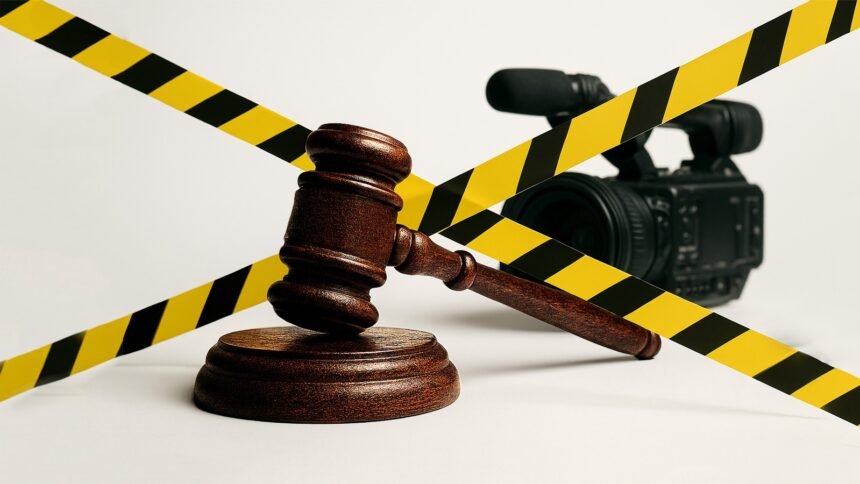The gavel may strike, but in Tanzania, it strikes in silence. This week, authorities announced a ban on live coverage of the treason trial of opposition figure Tundu Lissu, one of the East African nation’s most prominent critics of state power. The move comes at a time when the continent is already grappling with accusations of authoritarian drift, from Khartoum to Ouagadougou. But Tanzania’s decision to push proceedings behind closed doors has struck a particularly raw nerve, echoing an older story: when transparency becomes inconvenient, secrecy takes its place.
Tundu Lissu is no stranger to confrontation with power. He has spent decades challenging what he sees as the state’s erosion of democracy. The treason charges, which carry the weight of possible life imprisonment, are part of a familiar script in East Africa: muzzle the opposition, wrap dissent in legalistic procedures, and deny the public the ability to see how justice unfolds. By silencing live coverage, the government has not only barred cameras from the courtroom—it has shut a door on accountability.
For Tanzanians, this is more than a case about one politician. It is about the right to watch, to witness, to judge for themselves whether justice is being served or manipulated. Across the region, courtrooms have long doubled as theaters of political power, where verdicts are preordained, and judges read scripts rather than laws. The ban suggests that the authorities know the play won’t sit well with an audience.
Meanwhile, human rights advocates are alarmed. Local NGOs say the move violates constitutional guarantees of transparency in trials, while international observers warn that it erodes Tanzania’s hard-earned democratic reputation. The symbolism of switching off the cameras is powerful: it is the state saying, “We decide what you see, and what you don’t.”
This shrinking civic space mirrors developments further north, in Sudan, where the army is accused of systematic torture of detainees in its ongoing battle against paramilitary rivals. Reports emerging from Khartoum describe dark cells, coerced confessions, and medical evidence of beatings. The Sudanese Armed Forces, locked in a bloody struggle with the Rapid Support Forces, now find themselves accused of crossing lines that international law cannot ignore. If true, these abuses are not simply wartime excesses—they are war crimes.
The connection between Khartoum and Dodoma is not coincidental. Both governments are fighting existential battles: Sudan’s military against a rival armed group, Tanzania’s ruling party against a rival political vision. Both have chosen to weaponize secrecy, silencing coverage, stifling scrutiny, and reducing justice to whispers behind closed doors.
Then comes Burkina Faso, where the body of activist Alino Faso was repatriated this week after months abroad. His death—and his symbolic return—reminds Africans of the cost of dissent. Faso had campaigned tirelessly against corruption and authoritarian practices before being forced into exile. Even in death, he represents the silenced voices that continue to haunt African politics.
Three stories, three countries, but one thread: the shrinking of political space through control of information. Tanzania bans courtroom cameras. Sudan locks up and tortures. Burkina Faso buries an activist who dared to speak. For ordinary citizens, these events signal that their right to participate in public life is being whittled away, piece by piece.
But secrecy has consequences. When justice hides, rumors bloom. When trials are closed, credibility collapses. When torture is denied but never disproved, trust evaporates. Governments across Africa may believe they are securing themselves by shutting doors and drawing curtains. In reality, they are letting in the draft of suspicion and resentment.
Tanzania, once hailed as a model of stability in the region, risks tarnishing its reputation. Sudan, already drowning in conflict, adds human rights abuses to its list of sins. Burkina Faso, under military rule, buries not just activists but the fragile hope of civil society. The continent’s observers, from the African Union to the United Nations, issue their usual statements of concern. Yet ordinary citizens see through the charade. They know that “concern” does little to pry open locked doors.
In the end, banning live coverage will not silence Tanzanians. They will gather outside courtrooms, they will share whispers, they will speculate on social media. In Sudan, survivors will tell their stories to journalists, activists, and anyone willing to listen. In Burkina Faso, Alino Faso’s memory will live longer than the power of those who tried to silence him.
The state can dim the lights, but the shadows often speak louder.











